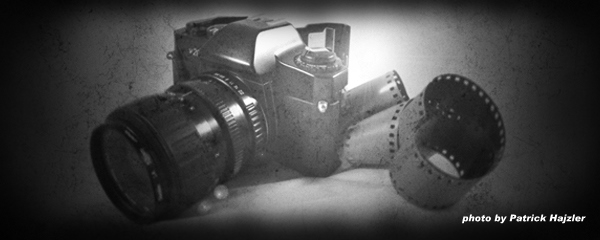
banner photo by Patrick Hajzler
by Wena Poon
When I was eighteen, I attended the orientation of a famous film school. I had every intention of enrolling, but I was put off by their presentation. The admissions director told us flatly that if we weren’t rich, we could forget about film school, because tuition costs money and filmmaking costs money. If we didn’t have the money, we’d better go find a rich patron, or be prepared to sell blood to fund our films.
That was not how I wanted to live my life as an artist.
So instead of making films, I make movies on paper, which other people call short stories if they’re short, or novels if they’re long. In Chinese, movies are called electric shadows (dianying). I make paper shadows (zhiying). It’s cheap, fast and efficient. I rely on myself to get it done, and if it doesn’t get done, I only have myself to blame.
I don’t write plays or screenplays, I write something else entirely: a piece of literary fiction that I hope puts you in the same location as the characters. After reading the story, I hope you are as convinced, as I have been, that we have just watched the same film together. If you ever find yourself in the locations where I “shot” the story, I hope you feel as moved as I do when I remember what happened there: at an old fountain in Valencia, on the steps of the National Gallery, at the taxi stand of Grand Central Station in New York.
I am a compulsive photographer. I photographed many of the locations that I shot the story in. Sometimes I pair the photographs with the lines from the story and exhibit them on my website. Because of technology, I can do all this instantaneously, for free. I do not have to ask anyone for money or permission. We are making paper shadows.
A few years ago I found myself acting out critical scenes in the novels or short stories that I write to make them flow better; I have done that ever since. Many writers say that reading their work aloud helps improve their ear for dialogue. I actually act out whole scenes, like an actor doing a script read-through. When I rehearse the scenes, I realize what sounds wrong, or corny, or mawkish. I rewrite the lines and rehearse again until I am satisfied. Sometimes I end up laughing or crying, in character – this greatly amuses my husband or my cat if they happen to be there. Above all, I am able to achieve better timing this way. Timing is so important in storytelling: comedians know this, actors know this, how come many novelists and short story writers do not? How many times have I read a story and gotten bored because a scene was too long? Regardless of the length of the work, the story must be tightly presented. Every detail, every gesture, must have a reason to appear on that page.
As a writer, I have more options than if I were an actress. I often play someone of a different gender, race, or age group. This makes some people uncomfortable. A literary editor called me a schizophrenic because of the diversity of roles in my stories. I suppose he expected that since I was Chinese, every single story I write must be about Chinese people. A Chinese American woman writer accused me of forgetting “who I really was”. To an artist, that is a real compliment. To be someone other than oneself is the ultimate leap of the imagination.
Writing is never difficult. The story has already been made manifest, it is always very clear, as if it is taking place before my camera lens. It is just a matter of recording and deciding what to show, what to leave out. I “cast” my stories and sometimes I even have real-life actors in mind; other times I know that if I make this film, I have to search for this face. Once I begin filming it is very clear what scenes must be shot next. I often shoot scenes out of order, then cut and re-cut them and rehearse them until they are ideal. I do this as I write, so that by the time I come to the end, I never re-write from scratch, because the film is nearly done at that point. It has been shot, cut, edited, re-cut, rehearsed, and recorded. Now, the test screening.
I show the close-to-final cut to trustworthy friends. I am never shy of showing drafts to people who have time to read them. I don’t know why many writers treat their drafts as sacred and are afraid to air them. I’ve never had a real, professional editor or a literary agent. So I’ve grown to rely on friends with good taste. They look at the final cut and sometimes they say brief, helpful things like “You need a scene whereby you show how …” and “I think you should cut it here and end on a high note…” It’s very easy for me to re-cut or insert new scenes after that.
Because of the particular way I “shoot” a short story or a novel, a lot of people experience my work as a film. They often pester me to think about “selling film rights”. Given what I know about film rights and the film industry, this is a curse, not a compliment. If the story has to be a film, I would prefer to raise my own funds and make these movies myself, because that is why I wrote them.
It is a special thing for me whenever I get to perform my work before a live audience. Perhaps due to a few bad experiences, event organizers do not normally invite authors to perform their own work. Sometimes they engage random actors to do it, and the result is often unsatisfactory. Performing my own work live is the purest way I can tell the story, exactly the way I have imagined it. I love seeing the audience reaction. I am always moved when people come up to me later to tell me how they felt about the story. Even better when they tell me their own stories.
I do not write so that I can tell people “I’m a writer”. I write so that I can connect with other human beings in this particular way. I am sad that most of my work is in book-form, for I am never there, with you, when you experience the story.
They say that books are dying. Underneath the common complaint that one has “no time” to read books is the fear of being alone. We forget that storytelling is a traditionally social activity. I am not afraid of the death of the book. But filmmaking is too expensive, too time consuming, too perverted of a business. Perhaps a better medium will be invented – or rediscovered – for a storyteller to experience a story together with her audience. I hope I will be there to take advantage of it.
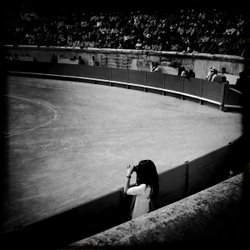
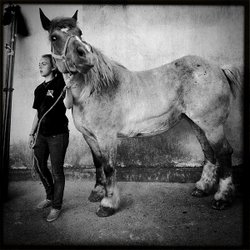
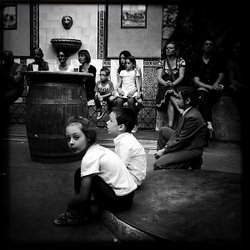

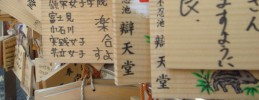
One thought on “Making Paper Shadows”
Comments are closed.